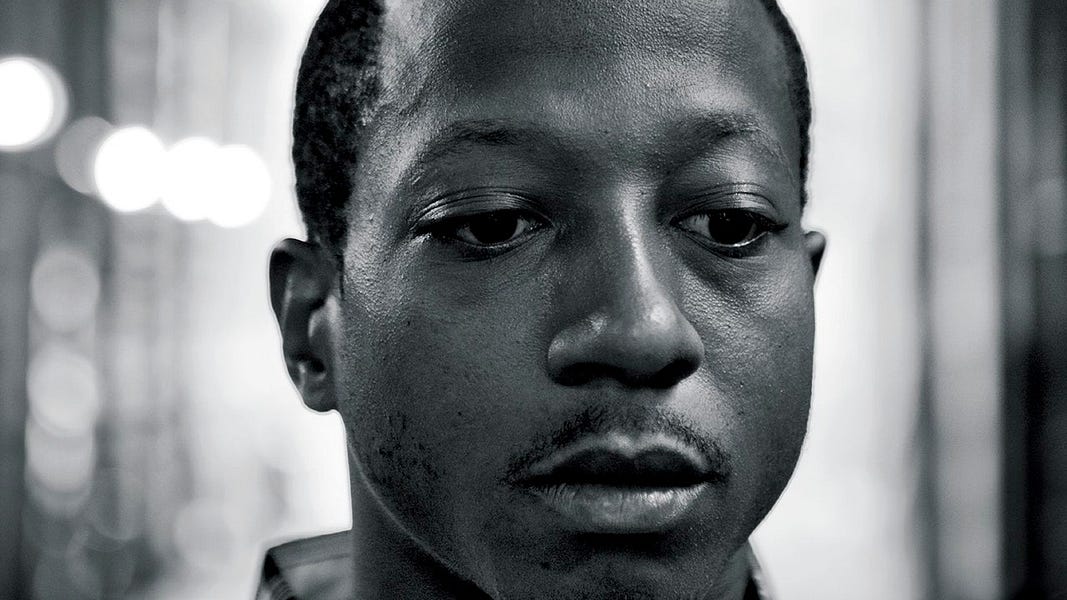
Ten days before Donald Trump descended the Trump Tower elevator in June 2015 to launch his 2016 Presidential campaign, Kalief Browder killed himself.
Browder, who had just turned 22, didn’t live to see Trump, a career criminal, known money launderer, self-confessed sexual predator, and notorious scofflaw use his reality TV fame to capture the GOP nomination, steal the Presidency, oversee the most corrupt Administration in history and then, with a toxic mix of psychopathic recklessness and sheer incompetence, put America on the path to 1,000,000 Covid dead.
Trump has committed (and bragged about getting away with) many of his crimes publicly. But when 16-year-old Kalief Browder was arrested there was zero evidence connecting him to the petty crime (stealing a backpack) he was alleged to have committed.
The teenager was arrested simply because he “fit the description.”
Instead of being forced to plead guilty to a crime he insisted he didn’t commit, Browder endured 3 years of torment and torture in Rikers Island.
Kalief Browder took his own life following a brutal wrongful incarceration in Rikers Island.
Kailef Browder’s story was highlighted here by the Innocence Project and his story was told again in the Say Their Names – No More Names exhibit created by Felicia A. Smith, Head of Learning and Outreach at Stanford Libraries. Here’s a part of that story:
He was 16 years old in 2010 when he was arrested for allegedly stealing a backpack. At the time of arrest, the police did not find a backpack on Kalief, but he and his friend (allegedly) matched the description of suspects in a reported theft. He was taken to the police station, fingerprinted and eventually charged with robbery, grand larceny and assault. His friend was allowed to go home.
Kalief refused to take a plea deal, insisting on his innocence and lack of evidence. He spent three years at the Rikers Island jail complex awaiting a trial. His family was not allowed to post his bail. He spent the equivalent of two years in solitary confinement and was beaten by prison guards multiple times. Kalief attempted to end his life several times in solitary confinement.
The unfounded charges against Kalief were ultimately dropped, and he was released….
Unfortunately, a crushing depression set in and Kalief attempted suicide again….
Kalief’s story was getting more attention in the media and from celebrities and politicians. He agreed to speak out and share the horrific footage from the jail’s surveillance cameras in an effort to save others from the depth of suffering and pain he experienced.
However, on June 6, 2015, that pain again proved too much for Kalief to carry, and he ended his life
I thought about the injustice of Kalief Browder’s case last night when the New York Times published the resignation letter that prosecutor Mark Pomerantz sent to new Manhattan DA Alvin Bragg.
Seventy-year-old Pomerantz, who had come out of retirement to assist in the Trump investigation, wrote that:
The team that has been investigating Mr. Trump harbors no doubt about whether he committed crimes — he did.
Again, Donald Trump’s massive and provable tax and bank fraud had been committed in plain sight.
In 2019, Michael Cohen, in sworn testimony, revealed that in one single instance of bank fraud Trump had inflated the value of a Westchster, NY property to Deutsche Bank by $270 million.
Pomerantz’s resignation makes it clear that NY prosecutors had built a provable case against Trump and the former Manhattan DA, Cyrus Vance, Jr., agreed with that assessment:
In late 2021, then-District Attorney Cyrus Vance directed a thorough review of the facts and law relating to Mr. Trump’s financial statements. Mr. Vance had been intimately involved in our investigation, attending grand jury presentations, sitting in on certain witness interviews, and receiving regular reports about the progress of the investigation. He concluded that the facts warranted prosecution, and he directed the team to present evidence to a grand jury and to seek an indictment of Mr. Trump and other defendants as soon as reasonably possible.
Pomerantz also writes:
I believe that your decision not to prosecute Donald Trump now, and on the existing record, is misguided and completely contrary to the public interest…. In my view, the public interest warrants the criminal prosecution of Mr. Trump, and such a prosecution should be brought without any further delay…. I and others have advised you that we have evidence sufficient to establish Mr. Trump’s guilt beyond a reasonable doubt, and we believe that the prosecution would prevail if charges were brought and the matter were tried to an impartial jury.
Last night, when I tweeted about NY’s treatment of Trump as compared to Kalief Browder, one Twitter user responded to me: “I think about Kalief Browder every night before I go to bed. Still makes me cry…”
Publicity around the Kalief Browder case helped ignite an effort to get Rikers Island—“a prison notorious for human rights offenses”—shut down permanently. But nearly seven years after Browder’s suicide, Rikers is still open.
Today, I’m thinking about the two systems of justice in New York City and the fact that teenager Kalief Browder endured three years of brutal, unjust incarceration and, having carried that trauma with him beyond jail, ultimately took his own life.
Meanwhile Donald Trump, a man guilty of numerous provable felonies, remains at large, still lying, cheating and stealing and—despite the overwhelming evidence against him in this Manhattan case—looks likely, once again, to go unpunished.
While paid subscriptions and one-time tips are always welcome, all content to this ad-free newsletter is free, so subscribe for $0 and you won’t miss anything. If you like what you read, please “like” and comment—and feel free to share this content knowing there’s no paywall.
Subscribe to Unprecedented
Subscribe to the newsletter and unlock access to member-only content.